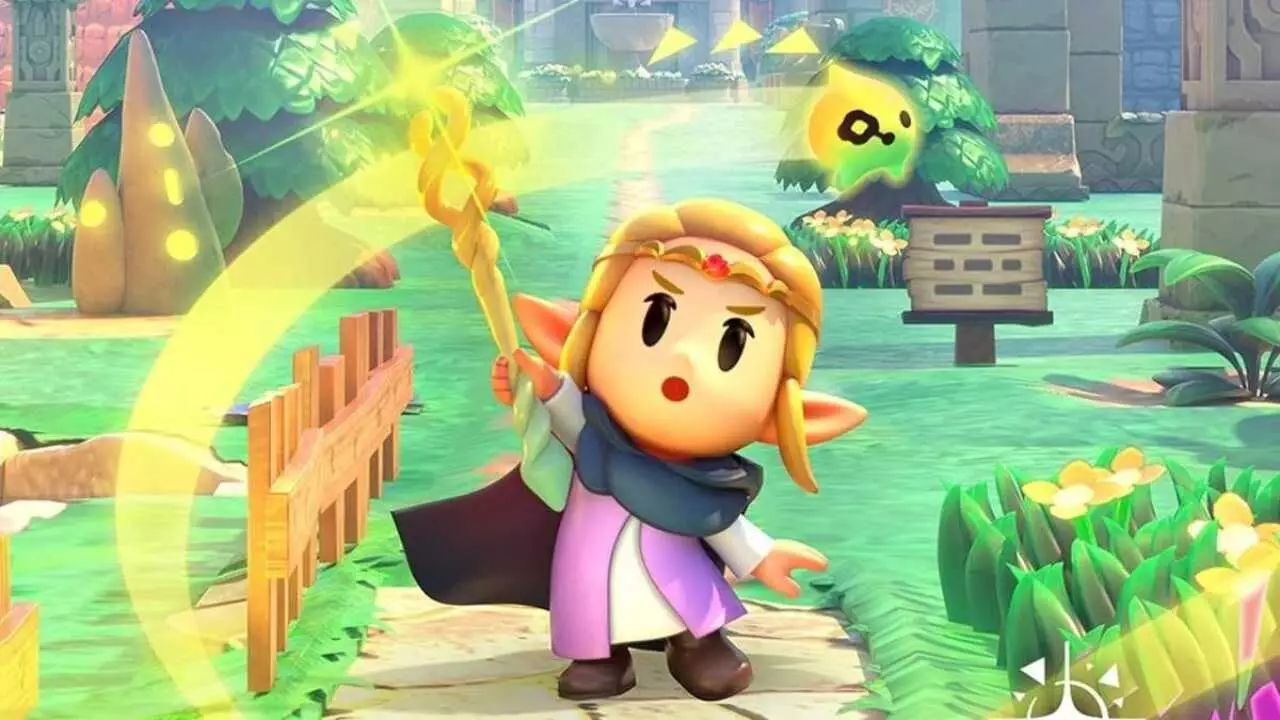The intricate tapestry of the Zelda franchise has long fascinated fans, sparking debates and discussions around its convoluted timeline. Nintendo’s latest installment, “Echoes of Wisdom,” has once again stirred the pot. Officially positioned in the ‘Hero is defeated’ timeline, this new entry fits snugly between “Tri Force Heroes” and the ‘Decline of the Hyrule Kingdom.’ This placement raises intriguing questions and interpretations regarding character arcs, legacy, and the implications of defeat in a narrative that traditionally celebrates heroism.
In “Echoes of Wisdom,” players are thrust into the shoes of Link, tasked with rescuing Princess Zelda from the clutches of the nefarious Ganon. However, the tale takes a dark turn when, after securing a hard-fought victory, Link encounters an ominous rift that swiftly engulfs him. This twist not only emphasizes the fragility of triumph but also illustrates a recurring theme in the Zelda series: the omnipresent threat that looms over Hyrule, manifesting in the form of mysterious rifts that wreak havoc across the land and cause the disappearance of significant figures, including the king and his council. The onus now falls on Princess Zelda, amplifying her role from damsel in distress to a proactive hero compelled to save her father, her people, and Link himself.
The designation of “Echoes of Wisdom” within the ‘Hero is defeated’ timeline suggests a deeper narrative exploration of failure and its consequences. This contrasts sharply with the alternate timeline outcomes of Ocarina of Time, where we see both a triumphant hero and alternate realities stemming from his success. Such an exploration offers fertile ground for character development, allowing for richer storytelling that delves into resilience, loss, and the weight of expectations. For fans immersed in these narratives, the shift towards recognizing defeat as a pivotal plot point shows that the Zelda franchise is willing to confront darker themes that resonate with players on a more profound level.
Within this context, it’s worth recognizing Nintendo’s past remarks regarding the complications of Zelda’s storyline. The company has mentioned that while timelines have significance, gameplay often takes precedence during development. This stance has led to mixed reactions among fans who cherish intricate stories alongside engaging gameplay. Eiji Aonuma’s insights into the prioritization of gameplay imply that the essence of Zelda may lie in interactive experiences over linear storytelling. This balance might explain why even with fresh additions to the timeline, the core of Zelda continues to be the player’s journey, not just the narrative setting.
With “Echoes of Wisdom” now officially part of the timeline, the Zelda community is abuzz with speculation regarding future entries and their possible narrative directions. As fans analyze the implications of Link’s defeat and Zelda’s newfound agency, it is evident that the discourse surrounding the timeline remains robust and dynamic. Will future titles continue to explore this darker facet of Hyrule’s lore, or will we return to the traditional triumph narrative? As gamers await further revelations, one thing remains certain: the Legend of Zelda franchise will continue to captivate and challenge its audience, pushing the boundaries of storytelling and gameplay as it evolves.

